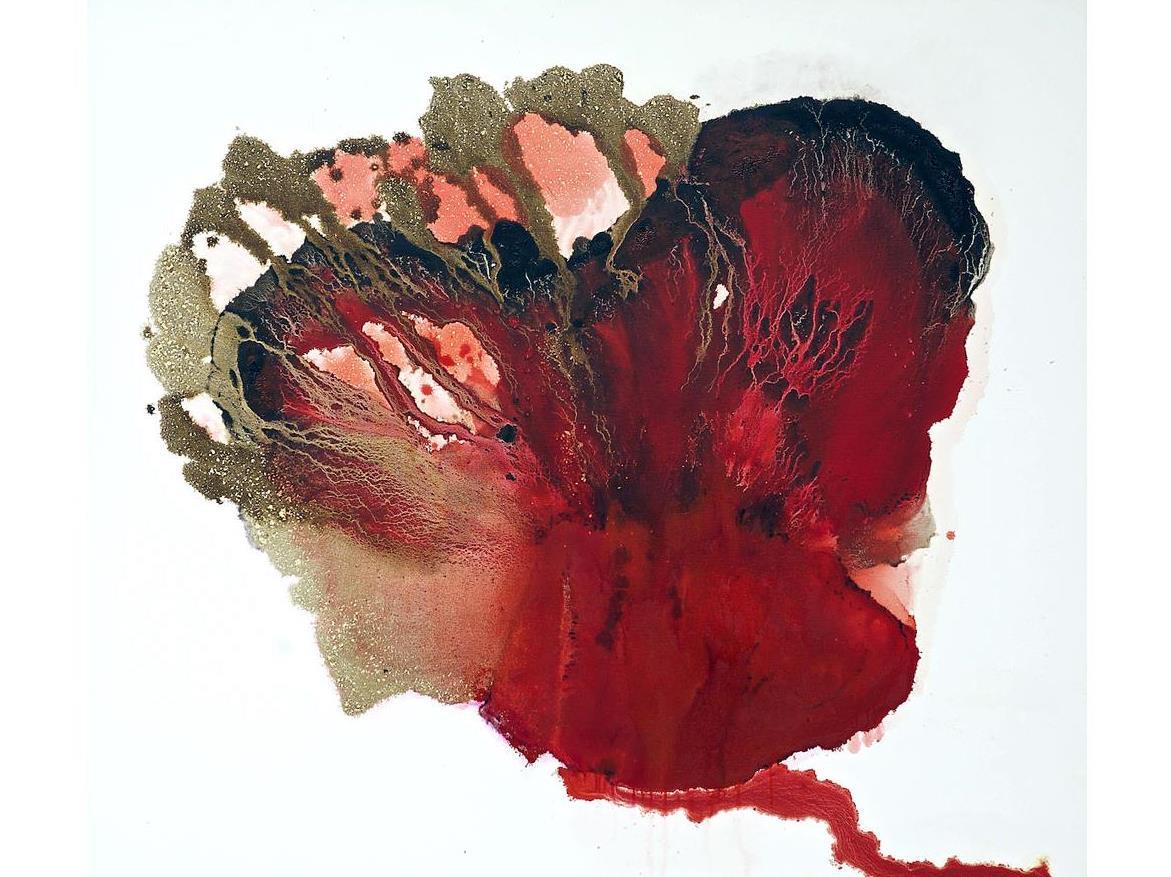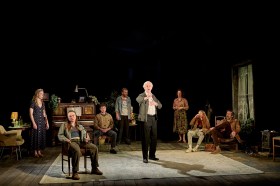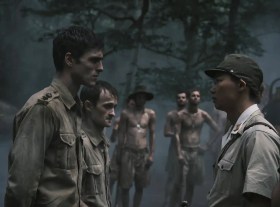Jenny Reddin, Poppy Image via Art Blart
Petros Treklis can easily remember his first ballet lesson: it was his audition for London dance school Trinity Laban Conservatoire of Music and Dance.
‘I was copying the person in front of me,’ he says. ‘I didn’t have a clue. It was pretty funny.’
Now a professional dancer with the Sydney Dance Company the 26 year-old came late to dance. Many of his peers started dancing at the age of 3. Treklis was virtually a grandad in dance years, starting at the age of 17.
Although he’d always been an enthusiastic participant in the dances at his Greek family weddings, he didn’t start taking formal lessons until he was doing his A-levels at a school in England which offered dance as a subject.
‘I did dance, drama and performing arts as my three subjects. I was like: I’m going to have to get a job out of something here and I ended up finding out that I really liked contemporary dance.’
Were there any benefits to starting later than his peers? ‘Maybe a later start to dance means you don’t have bad habits,’ he says. ‘When you’re trained from a younger age sometimes you might be trained in a particular way or a particular style…sometimes one is more beneficial to the overall way that professional dance companies work. If you’re starting later you can learn what people are looking for,’ he says. In addition, he says: ‘You’ve got an adult mind so you can take on information and really apply it.’
There are lots of factors that can prevent people from taking a creative leap early in life. Parents who steer their offspring in a different direction; self-doubt; alternative careers; and or starting a family young can all put creative aspirations on the back-burner. But there is plenty of proof you can be a late-starter and still succeed.
In March Suzanne McCourt, 67, was long-listed for the $60,000 2015 Miles Franklin Award for her debut novel The Lost Child. McCourt only began to write creatively, after a career in teaching, marketing and public relations. She believes people reach a readiness to explore creatively at different ages. “I think when you go into that creative space it’s, I suppose, a really safe place and a really dangerous place. You can’t go there without being able to deal with your own truths. You can’t lie to yourself; you can’t hide once you start on that creative journey. So it took me a long time to find the courage and the persistence and the determination to do that. I just didn’t have those qualities when I was younger,’ she says.
Painter Jenny Reddin, 60, will exhibit her work at the Mornington Peninsula’s Art Red Hill event in May. Her artistic ambitions took a back seat until mid-life but the seeds of her artistic future were there from early on. In high school teachers told her parents that her talent should be fostered at art school but they ignored the advice. ‘They never told me because they were at the age where they figured that people who were artists were very strange and they didn’t want me mixing with that sort of group so they directed me towards a business career.’
At age of 40 she took a year off her human resources career when she and her husband adopted a child from India. During that time she took art classes and reconnected with her love of painting and she never returned to the corporate world. She’s now halfway through her final subject in a Bachelor of Fine Arts, exhibits fairly regularly and plans to go to the Ruskin Summer School at Oxford University in a couple of years.
She admits being a late-starter has both upsides and downsides. ‘What I lack is I haven’t come through the normal educative process that would see me with networks and relationships with people who can leverage my career so that’s a massive downside. It’s very hard to go backwards and generate that and my practice suffers greatly from that.’
‘The upsides are that I’ve probably got a richness of life experience that younger people don’t have,’ she says. ‘I’ve got a sense of business and how the business world operates and therefore what galleries are looking for.’
She acknowledges, too, that she is fortunate to be financially comfortable, have a supportive husband and plenty of space to work in the studio on her 40-acre property in the Yarra Valley, all things that are rarely a given for a younger artist.
For others facing fears that they may have left their creative journey too late, she’s adamant that it shouldn’t be a barrier. ‘Don’t think that it’s too late. If it is something that is of interest to you there is nothing more centring than getting completely absorbed in a piece of work that you’re doing. I go into a really deep meditative state and it’s incredibly soothing and enriching and challenging and stimulating and innovating and just really worth doing…I would highly recommend it.’
On a practical front she suggests being aware of the motivation behind your creative practice. If it’s just a hobby, she says, ‘Just go and enjoy it and don’t worry about getting to market; don’t worry about what other people think. Just get into it.’
It’s a different story if you’re seeing it as an alternative career, she says, ‘I think you’ve got to get out into the market, meet people, forge links, make sure you understand how the market operates, what the routes to market are and who the players are who will help you get there. I think that’s really fundamental.’
McCourt agrees that sharing the journey is vital. ‘I think that it’s important to surround yourself with supportive and like-minded people; people who are also pursuing the dream of what they’d like to do,’ she says. She did writing workshops and won a mentorship with Andrea Goldsmith through the Victorian Writers’ Centre. She also ran workshops inspired by Julia Cameron’s best-selling book The Artist’s Way. ‘I met some absolutely wonderful people that way who were in very diverse creative areas,’ she says.
Like McCourt Treklis advises people to take advantage of learning opportunities. ‘You have to just work really hard and you have to be willing to put yourself out there and be a blank canvas. Go and take as many classes as you can; be willing to learn.’
‘Choreographers are looking for people that can turn on and do loads of different things. If you really want to approach it professionally you have to make sure that you’re well-trained in your ballet; well-trained in your understanding of release technique; and you understand your own body and what its capabilities are.’
But McCourt also encourages people to take the pressure off and just enjoy the pleasure of playing creatively initially rather than worrying too much about outcomes. ‘I think one of the things that really stops people is the world is so success-driven in terms of fame and wealth,’ she says. She advises people to be prepared to make a big mess at first, adding that her ultimate novel was ‘nothing like’ the words she wrote when she started. ‘I always remember Leunig saying once that when he begins a cartoon he often thinks it’s going to go somewhere and it doesn’t go there at all or it becomes a terrible mess and just when he’s ready to throw it and begin again something else emerges.’



_Encounters-in-Reflection_Gallery3BPhoto-by-Anpis-Wang-e1745414770771.jpg?w=280)

